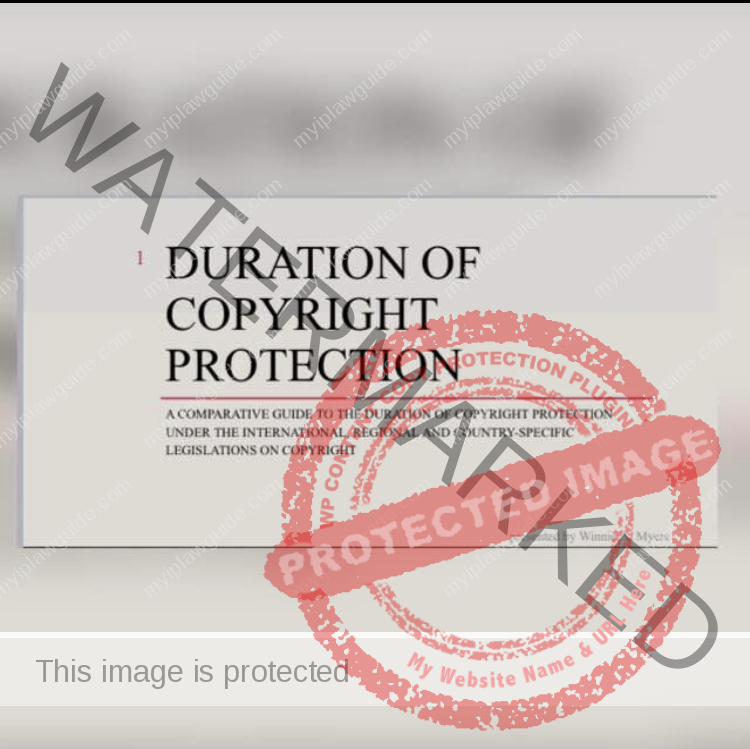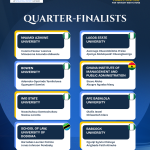Topic: Duration of Copyright Protection
Date: 11 July 2020
Time: 7PM (GMT +1)
Presenter: Winnie Akushika Myers
Platform: Zoom
The fifth personal development seminar of My Intellectual Property Law Guide (MIPLG) commenced at 7:00 PM. The seminar on duration of copyright protection was presented by Winnie Akushika Myers who began her presentation at 7:05 PM. Her presentation was titled “A Comparative Guide to the Duration of Copyright Protection under the International, Regional and Country- Specific Legislations on Copyright”.
Continuing with an introduction to the subject matter, she defined copyright simply as the power possessed by a person over a work toprevent the unauthorised exploitation of the work. A detailed discussion on this had been held in a previous seminar. Winnie explained that the duration of copyright protection may vary based on the type of right sought, the work sought to be protected and the ‘person’ (natural or artificial) for whom protection is sought. She also reiterated the difference between the author’s moral and economic right. Her presentation was delivered in three sections; duration of copyright protection under international, regional and national laws.
1. International Protection of Copyright
In this section, Winnie explained that her focus was the Berne Convention for the Protection of Literary and Artistic Works 1979 because of its significance in application. Ghana and Nigeria became Member States to the Convention in 1991 and 1993 respectively. The provisions of the Berne Convention, she stated, applies to authors or creators who are nationals of any of the Member States under this Convention or who although not national of a Member State, has his or her work(s) first published in a Member State. Duration of Copyright protection under the Berne Convention is dependent on the factors stated above. However, moral rights of the author exist in perpetuity- even after subsisting economic rights are transferred.
In addition, Winnie put out a second legislation under this section- the WIPO Copyright Treaty (WCT) 1996. She stated that this treaty flows from the Berne Convention. The WCT protects copyright in the digital environment- computer programs and data compilation. Ghana and Nigeria became signatories to this treaty in 2006 and 2018 respectively. These ‘digital’ works as stated above are protected as literary works under the WCT. Generally speaking, the WCT does not alter the duration of copyright as provided under the Berne Convention. However, a significant contribution is the repeal of the duration (25 years) of protection provided for works of applied arts under the Berne Convention by Article 9 of WCT.
2. Regional Protection of Copyright
Winnie explained that the African Regional Intellectual Property Organisation (ARIPO) does not have any specific copyright treaties or agreements. However, the Lusaka Agreement on the creation of the Organisation 2016 recognises copyright and its related rights. ARIPO is comprised of 19 Member States. While Ghana is a Member State, Nigeria is not.
3. National Protection of Copyright
Winnie provided the participants with a detailed explanation of the provisions on duration of copyright protection under the Copyright Act 2005 (ACT 690) for Ghana and Copyright Act CAP C28 LFN 2004 for Nigeria. She stated that these legislations contain similar provisions in relation to duration, although there were a few noticeable subject matter specific differences.
Winnie concluded her presentation at 7:28 PM and entertained a Q & A session during which contributory comments were made by some participants. The meeting was ended at 7:46 PM.
V. C. Onyeagbako, ACIArb.
Reporter





